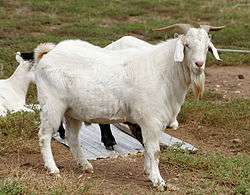Definify.com
Webster 1913 Edition
Bode
Bode
,Verb.
T.
[
imp. & p. p.
Boded
; p. pr. & vb. n.
Boding
.] [OE.
bodien
, AS. bodian
to announce, tell from bod
command; akin to Icel. bo[GREEK]a
to announce, Sw. båda
to announce, portend. √89. See Bid
.] To indicate by signs, as future events; to be the omen of; to portend to presage; to foreshow.
A raven that
bodes
nothing but mischief. Goldsmith.
Good onset
bodes
good end. Spenser.
Bode
,Verb.
I.
To foreshow something; to augur.
Whatever now
The omen proved, it
The omen proved, it
boded
well to you. Dryden.
Syn. – To forebode; foreshadow; augur; betoken.
Bode
,Noun.
1.
An omen; a foreshadowing.
[Obs.]
The owl eke, that of death the
bode
bringeth. Chaucer.
2.
A bid; an offer.
[Obs. or Dial.]
Sir W. Scott
Bode
,Noun.
A messenger; a herald.
Robertson.
Webster 1828 Edition
Bode
BODE
,Verb.
T.
BODE
,Verb.
I.
This bodes well to you.
BODE
,Noun.
1.
A stop.Definition 2026
Bode
bode
bode
English
Verb
bode (third-person singular simple present bodes, present participle boding, simple past and past participle boded)
- To indicate by signs, as future events; to be the omen of; to portend; to presage; to foreshow.
- (intransitive) To foreshow something; to augur.
- Dryden
- Whatever now / The omen proved, it boded well to you.
- Dryden
Translations
to be the omen of; to portend to presage
|
to foreshow something; to augur
|
|
Derived terms
Noun
bode (plural bodes)
- An omen; a foreshadowing.
- Chaucer
- The owl eke, that of death the bode bringeth.
- Chaucer
- (obsolete or dialect) A bid; an offer.
- (Can we find and add a quotation of Sir Walter Scott to this entry?)
- A messenger; a herald.
- (Can we find and add a quotation of Robertson to this entry?)
- A stop; a halting; delay.
Etymology 2
Inflected form of bide.
Verb
bode
- simple past tense of bide
- Tennyson
- There that night they bode.
- Tennyson
References
- “bode” in Douglas Harper, Online Etymology Dictionary (2001).
Anagrams
Czech
Pronunciation
- IPA(key): /ˈbodɛ/
- Rhymes: -odɛ
- Hyphenation: bo‧de
Noun
bode
- vocative singular of bod
Dutch
Pronunciation
Etymology
From Middle Dutch bode, from Old Dutch *bodo, from Proto-Germanic *budô. Related to Proto-Germanic *buþą (compare Old Swedish gibod).
Noun
bode m, f (plural boden or bodes, diminutive bodetje n)
Derived terms
- bodes, bodin (f messenger)
- bodenbrood
- bodenkamer f or m
- bodenloon n
- dienstbode (f servant only)
- geluksbode m or f
- gerechtsbode m
- ijlbode, renbode, snelbode m or f
- jobsbode, onheilsbode m or f
- postbode m or f
References
- M. J. Koenen & J. Endepols, Verklarend Handwoordenboek der Nederlandse Taal (tevens Vreemde-woordentolk), Groningen, Wolters-Noordhoff, 1969 (26th edition) [Dutch dictionary in Dutch]
Verb
bode
- (archaic) singular past subjunctive of bieden
Middle Dutch
Etymology
From Old Dutch *bodo, from Proto-Germanic *budô.
Pronunciation
- IPA(key): /ˈbɔːdə/
Noun
bōde m
Declension
Declension of bode (weak)
Portuguese

bode
Etymology
Unknown. Probably from a pre-Roman substrate of Iberia.
Pronunciation
- (Portugal) IPA(key): /ˈbɔˑðɨ/
- (Brazil) IPA(key): /ˈbɔˑd͡ʒi/
- (Northeast Brazil) IPA(key): /ˈbɔˑdi/
- (South Brazil) IPA(key): /ˈbɔˑde/
- Hyphenation: bo‧de
Noun
bode m (plural bodes)
Synonyms
- (goat buck): cabrão